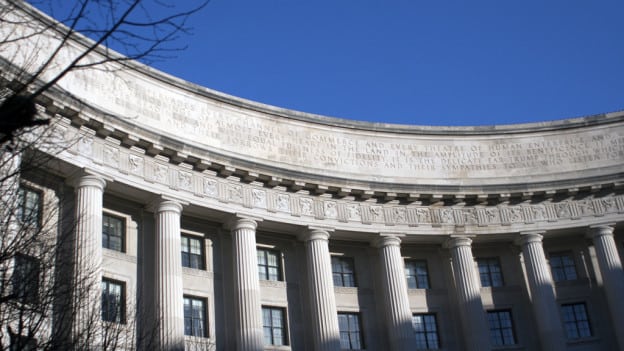West Virginia v. Environmental Protection Agency
What does this mean for America’s future and the climate crisis?
Key Actors:
- Environmental Protection Agency (EPA); organisation that is trying to create laws around pollution caused by the fossil fuel industry
- West Virginia; state that opposes legislation around climate change made by EPA
- Biden administration; current leading government of the U.S.
Background Information
The Biden administration and EPA’s goal is trying to reduce the climate crisis by regulating pollution made by power stations. They are opposed by the state of West Virginia and other Republican-led states.
West Virginia’s Case
In this case between West Virginia and the Environmental Protection Agency, West Virginia is challenging the Environmental Protection Agency’s (EPA) ability to create rules that regulate the pollution caused by fossil fuel-powered power stations. The Biden administration is now delaying decision making on new oil and gas law. This happened after a judge from Louisiana prevented officials from using the higher cost estimates of climate change when making rules for industries that largely contribute to pollution.
West Virginia is supported by 18 other majority Republican states, including Wyoming and North Carolina. This court case has the potential to undermine the Biden administration’s authority. The administration has had some difficulty passing clean energy laws in Congress due to delays as well as due to opposition from Republicans and West Virginia Democratic Senator Joe Manchin.
West Virginia argues that the EPA shouldn’t be allowed to issue rules that “are capable of reshaping the nation’s electricity grids and unilaterally decarbonising virtually any sector of the economy”, and only Congress should be able to create legislation around climate change.
Patrick Morrisey, attorney general of West Virginia, explained that “This case is much more than about climate change, it gets down to who makes the decisions, should it be an unelected body of bureaucrats or should Congress provide the clear signal.”
According to the former EPA regional administrator, Judith Enck, “this is a vitally important case that will define future federal action on climate change issues … Congress seems unwilling or unable to address the climate crisis. Federal agencies need to be able to take action.”
It’s a surprise for the Congress to consider this case at all, considering there is no active rule to challenge. Richard Revesz, a leading expert in environmental law at the New York University School of Law, said, “It surprised me they took this case, this would be an excellent candidate for dismissal.”
Biden’s Response
The Biden administration has argued that currently, the EPA has no regulation on polluting power plants, thus there is no case to argue at all. The administration argued that “Petitioners lack standing to invoke this court’s jurisdiction because they are not injured.”
Future Federal Action on Climate Change
Even if Biden and his supporters in Congress are able to pass the parts that impact climate change of the Build Back Better Act, they would still have to use strict executive action to cut down on the pollution from power plants, cars, and trucks if they want to meet their climate emission reduction goals and avoid drastic climate change. This would be additional to the Build Back Better Act, which supports wind and solar energy and electric vehicles.
The history of the U.S. government’s ability to regulate climate change includes former President Barack Obama’s 2015 Clean Power Plan aimed to reduce emissions from coal-fired power plants, but was immediately opposed by Republican-led states and was blocked by the supreme court before ever taking action. Former President Trump’s Administration did not contribute much to climate change regulation either.
“This is unfortunate for the rest of the world, as the climate crisis continues steadily. There is no more time to delay curbing greenhouse gas emissions and finding solutions for a more equitable and just clean energy future,” said Carol Browner, former administrator of the EPA and now chair of the League of Conservation Voters. This supreme court case may result in severe restrictions on future U.S. governments when they try to reduce emissions causing climate change. West Virginia could forever hamper the government and EPA’s ability to create regulations around climate change. Despite these challenges, Biden’s administration and other environment activist groups continue to fight for a cleaner climate through legislation and policy making.
Milman, Oliver. “Supreme Court Case Could Restrict Biden’s Effort to Tackle Climate Crisis.” The Guardian, 24 Feb. 2022. The Guardian, https://www.theguardian.com/environment/2022/feb/24/supreme-court-case-biden-climate-crisis.
Millhiser, Ian. “The Absurd Supreme Court Case That Could Gut the EPA.” Vox, 23 Feb. 2022, https://www.vox.com/2022/2/23/22937517/supreme-court-epa-west-virginia-clean-power-plan-climate-change.
Newburger, Emma. “Biden Pauses New Oil and Gas Leases amid Legal Battle over Cost of Climate Change.” CNBC, 24 Feb. 2022, https://www.cnbc.com/2022/02/24/biden-administration-pausing-new-oil-and-gas-leases-amid-legal-battle-.html.
https://www.powermag.com/wp-content/uploads/2017/03/epa2-1024×576-624×351.jpg

